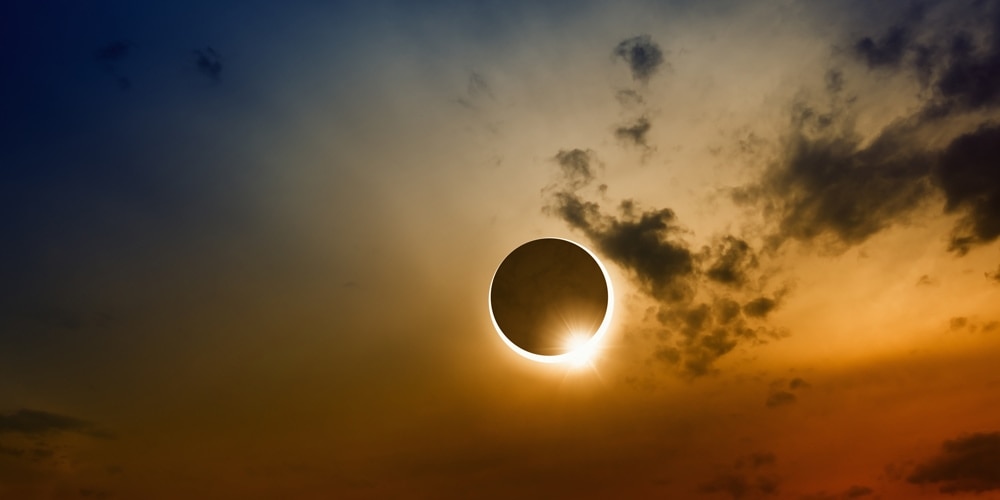
Yesterday, I got to witness a total eclipse. For the first time in my life, I watched the sun go dark at midday. The change was dramatic!
A day or two before the event, I had read in a CNN article that if you live near the path of the total eclipse to be sure not to miss it, that there is a tremendous difference between even 99 percent and totality. Today, I experienced that for myself.
I arrived with students and employees from my university to the chosen viewing spot in Athens, Tennessee, about 20 minutes before the eclipse began. Someone had to tell me to don my eclipse glasses and take a look because there was nothing that alerted me to the fact that something had begun nibbling at the sun. But sure enough, I could see a tiny sliver was gone.
“Never underestimate your own little light.”
“Nice!” I thought, and then turned my attention to some students who were starting up a game of soccer on the smooth green field just below where I stood. From time to time, I’d put on my glasses and peer upward, always impressed with how the dark orb of the moon was progressively encroaching upon the sun. But without the glasses, I couldn’t tell anything was happening—well, at least not for a long time.
About 10 minutes before totality, however, people around me who had sought shade began emerging from the shadows because the August sun just wasn't as hot anymore. At 6 minutes out, the light began to dim some, but not unlike when a light cloud cover spreads across the sky and dampens brilliant sunshine. Still, if I weren't paying attention, I might not have known anything was happening. I had to put on my eclipse sunglasses to see the sun was nearly consumed. Three minutes out, someone near me shouted, "Listen! Cicadas!" Sure enough, night chirpers were filling the air with their song. But I could still see my shadow clearly in the weirdly dim light. We were at 99 percent.
Then suddenly, abruptly, the sun was gone. On a completely clear, sunny August early afternoon, it was as dark as it is about 30 minutes after a sunset. The sky took on a deep navy blue and horizon had the final darkening glow of a day that's done.
Totality.
The sun was gone. It was night—for a brief moment, that is.
And then came that diamond gleam to the right of the dark globe as the moon edged on its journey without pause. Within 30 seconds, it was heavy cloud-cover light, then light cloud-cover light, and then it was sunny again.
I slipped my eclipse glasses over my eyes, and saw only a thin fingernail of sunlight on the opposite side of the dark globe. But after the sudden darkness, even that sliver of sun made it day again.
“Let your light so shine before men. . .” (Matt. 5:16). . . The words of the verse drifted through my mind with stunning clarity. And right on its heels this distinct thought: “Never underestimate your own little light.”
In a world of deepening darkness, one sliver of light—even just a 1-percent light—can make all the difference if that light has the power of the sun—or, the Son. “I am the light of the world,” Jesus says, but He asks to shine that light through us. He has put His inestimable treasure of light in our earthen vessels (2 Cor. 4:7) that we may draw others to Him. But we have to be sure to let our light shine.
I can tell you from firsthand experience, there’s a huge difference between a 99 percent eclipse and a total eclipse. So don’t think that your one little light doesn’t matter. In a world that is fast growing dark with evil and despair, even 1 percent sunshine can make all the difference!
Bio: Rachel Williams-Smith is dean of the School of Journalism and Communication at Southern Adventist University.